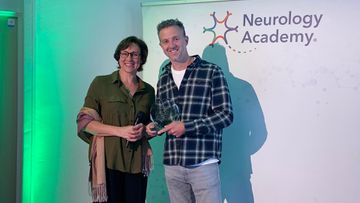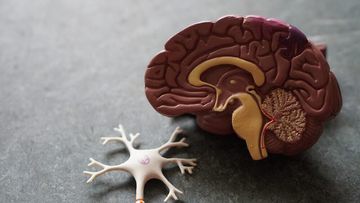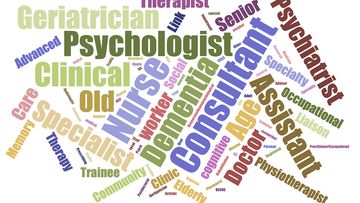Dementia: the latest in treatment and prevention
With over 50 million people living with dementia across the world right now, treatment to help manage symptoms or slow progression is highly sought after and in short supply.
At present, there is limited treatment available for the various types of dementia, and the treatment that is available is low efficacy. Parkinson’s dementia and Alzheimer’s both use rivastigmine as a symptomatic treatment as, despite their different pathologies, they both have the common feature of cholinergic deficits but there is much debate around the usefulness of the drug in managing either condition.
The holy grail of clinical research would be to find a disease-modifying drug but 99.7% of all research clinical trials for Alzheimer’s disease have failed in the past 15 years. Whether this is due to the overall health of the patients in the trials, problems with the treatment itself, the trial design or even because the target, to break down the toxic amyloid, is not the right target, is still unclear.
The goal of research into new treatments is to find strategies to modify the ‘amyloid cascade’ - the build up of amyloid deposits, or plaques, in the brain, whether from stopping them building in the first place, or breaking up the plaques that develop, though as yet there has been little by way of a breakthrough.
Other forms of treatment involve changing the way the brain ‘thinks’. Cognitive (brain) training (CT) is a way of learning new methods to enhance information coding or retrieval of previously learnt material. There is varied views on the efficacy of this, with theNHS concluding that there is insufficient evidence of it as a preventative treatment for dementia. Cognitive stimulation (CS) is a means of stimulating thoughts, interaction and opinions, whilst cognitive rehabilitation (CR) uses strategies such as memory aids, or establishment of routines to compensate for cognitive impairment.
Additional non-pharmacological interventions are more around changing the way people with dementia experience life as a whole, such as through sensory rehabilitation to improve quality of life, and adapted cognitive stimulation therapy. The latter, suitable for people with Parkinson’s and Lewy body dementias, is essentially using Montessori principles – a childhood education philosophy – for people with dementia; engaging people across a range of senses with activities that leave them feeling rewarded by their involvement rather than frustrated in their attempts.
The biggest problem across all of these treatments, however, is that they seek to manage the effects of dementia, not the cause. In our latest Dementia MasterClass, Professor Iracema Leroi shared with delegates that whilst dementias vary in their pathologies and the symptoms people experience, at the most basic level, dementia is ‘brain failure’, and brain failure has a generic neuropathology – inflammation. Inflammation, currently linked to a growing number of health problems, is the latest focus for dementia research in its search for an effective treatment, though at present researchers note only ‘a causal relationship between chronic inflammation and the development of dementia’.
As in all areas of illness, prevention is better than cure, and this cannot be more true than with those illnesses, like dementia, where there is no cure. At present, the research is ongoing into prevention too, but there has been significant headway in that direction lately. Just last year, the Lancet Commission found that over one third of dementia cases might be theoretically preventable, with 35% of dementia cases being linked to nine lifestyle-related risk factors.
The irrefutable link between the healthiness of an individual and their likelihood of developing dementia across markers including obesity, smoking, depression and physical inactivity, provide, whilst not a definitive set of preventative measures, at least a clear indication that maintaining a positive, active and healthy lifestyle is an important factor in preventing dementia.
Research continues into both treatment and prevention for dementia, and our Dementia MasterClass seeks to be at the forefront of practical education in this. To learn, debate and discuss the latest in this and other cutting edge developments in dementia, our next MasterClass in May is the place to be. Find out more on our website.
Related articles
Promoting prevention, supporting management
Led by proactive clinicians determined to see improvement in the way we prevent, diagnose and manage dementias, Dementia Academy supports healthcare professionals with the latest tools, resources and courses to do just that.


